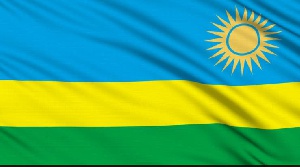Rwanda's livestock subsector is expected to get a major boost and dairy farmers get a ready market for their produce, thanks to the construction of a factory that will be making powdered milk.
According to information from the Ministry of Trade and Industry, the installed capacity of that factory will allow it to process 252,000 litres per day.
It will be constructed in Byumba Sector of Gicumbi District in Northern Province.
The plant is estimated to cost around Rwf37 billion in investment, according to information from TRIOMF East Africa - a joint venture firm owned by South African and Rwandan investors, its majority shareholder.
Construction of the plant is expected to have started by the end of this year, and it will take a year for the factory to be completed, said Antoine Juru Munyakazi, Executive Chairman of TRIOMF East Africa.
The factory will be owned and operated by a company called East African Dairies, a shareholding between TRIOMF East Africa and dairy farmers in Gicumbi District.
TRIOMF East Africa will have 80 percent, while farmers will own 20 percent of the shares of the factory.
The New Times understands that the process to establish the factory is in good progress, and that TRIOMF's financing negotiations with BPR (Banque Populaire du Rwanda Limited) are making good progress.
"We have that will to process milk into powder because it can be easily and safely preserved, and there is also a market for that product in neighbouring countries such as (DR) Congo," Munyakazi said.
He added that the company will invest its own money as well as bank loan, adding that the request for loan was promising.
Pierre-Célestin Hakizimana, the president of IAKIB - a dairy farmers' cooperative in Gicumbi District which represents the 10 cooperatives that will have shares in the factory, told The New Times that the cooperatives already had about Rwf360 million in savings allocated for that activity.
However, he said that the company (TRIOMF) would make an arrangement which would enable the farmers get the required investment portion, which they can reimburse later through milk sales.
"The investor (TRIOMF) said that we would be supplying it with milk and we will be paying back through the profits we will be making," he said adding that estimates suggested that it would take five years for them to fully settle the credit.
A major relief
Given its processing capacity, this is poised to be the biggest milk-processing factory because as of now.
Inyange Industries Ltd, an agro-processing firm, which has so far been the largest milk processor in Rwanda, has three factories including Masaka in Kigali; Inyange Savannah Dairy in Nyagatare District, and Mukamira Dairy in Nyabihu District, with a combined processing capacity of 190,000 litres per day.
The planned factory is also the first of its kind in Rwanda in that it will be producing powered milk, something that is unprecedented in the country.
Powdered milk or milk powder has a far longer shelf life than liquid milk and does not need to be refrigerated, facilities that are not readily available everywhere.
Hakizimana said that IAKIB which is made up with more than 4,000 farmers, collects 38,000 litres of milk per day, while it supplies 15,000 litres of it to Inyange Industries.
"We were struggling to get additional market for our produce. This factory would be a relief for us as it will enable us get a ready market for our produce," he said pointing out that, overall, the cooperatives in Gicumbi District collect some 95,000 litres of milk per day.
"We were planning to increase the size of our cattle by introducing highly productive cow breeds, but we were discouraged by lack of market/factory," he said expressing that there is also other milk produce that lacks ready buyers in neighbouring districts.
Because this dairy product (powder) is nonperishable, its cost of transportation and storage is significantly lower than its liquid counterpart, making it valuable to those living in developing countries.
Cassien Karangwa, the Director of Domestic Trade at the Ministry of Trade and Industry said that the factory will do much in advancing Rwanda's dairy sector, economy and improve the livelihoods of the population.
"It will reduce imports of powdered milk, and drive up Rwanda's export revenues. It will also support job creation, increase tax revenues," he said.
"It can also be a solution to the milk produce of the dairy farmers, not only in Gicumbi, but also in other districts of Northern and Eastern Province," he observed.
Rwanda produces more than 2.2 million litres a day, while only about 10 per cent of it gets processed (in factories), according to data from the Ministry of Agriculture and Animal Resources.
Africa News of Monday, 20 January 2020
Source: allafrica.com

















